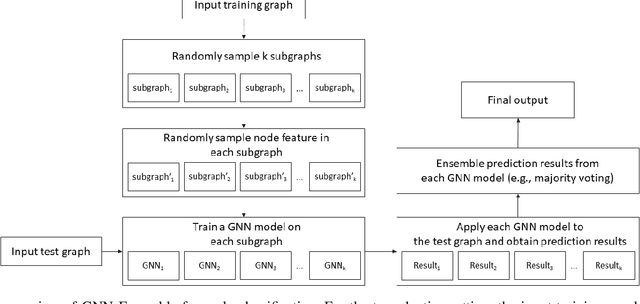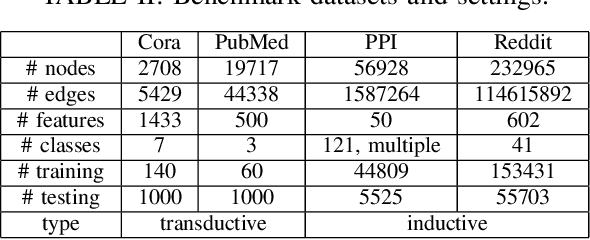GNN-Ensemble: Towards Random Decision Graph Neural Networks
Paper and Code
Mar 20, 2023



Graph Neural Networks (GNNs) have enjoyed wide spread applications in graph-structured data. However, existing graph based applications commonly lack annotated data. GNNs are required to learn latent patterns from a limited amount of training data to perform inferences on a vast amount of test data. The increased complexity of GNNs, as well as a single point of model parameter initialization, usually lead to overfitting and sub-optimal performance. In addition, it is known that GNNs are vulnerable to adversarial attacks. In this paper, we push one step forward on the ensemble learning of GNNs with improved accuracy, generalization, and adversarial robustness. Following the principles of stochastic modeling, we propose a new method called GNN-Ensemble to construct an ensemble of random decision graph neural networks whose capacity can be arbitrarily expanded for improvement in performance. The essence of the method is to build multiple GNNs in randomly selected substructures in the topological space and subfeatures in the feature space, and then combine them for final decision making. These GNNs in different substructure and subfeature spaces generalize their classification in complementary ways. Consequently, their combined classification performance can be improved and overfitting on the training data can be effectively reduced. In the meantime, we show that GNN-Ensemble can significantly improve the adversarial robustness against attacks on GNNs.
 Add to Chrome
Add to Chrome Add to Firefox
Add to Firefox Add to Edge
Add to Edge